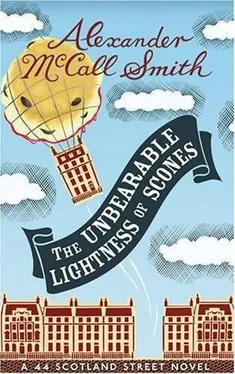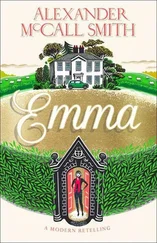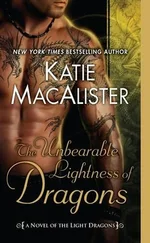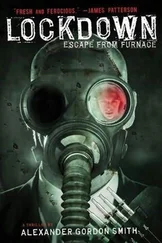Alexander Smith - Unbearable Lightness of Scones
Здесь есть возможность читать онлайн «Alexander Smith - Unbearable Lightness of Scones» весь текст электронной книги совершенно бесплатно (целиком полную версию без сокращений). В некоторых случаях можно слушать аудио, скачать через торрент в формате fb2 и присутствует краткое содержание. Жанр: Триллер, на английском языке. Описание произведения, (предисловие) а так же отзывы посетителей доступны на портале библиотеки ЛибКат.
- Название:Unbearable Lightness of Scones
- Автор:
- Жанр:
- Год:неизвестен
- ISBN:нет данных
- Рейтинг книги:4 / 5. Голосов: 1
-
Избранное:Добавить в избранное
- Отзывы:
-
Ваша оценка:
- 80
- 1
- 2
- 3
- 4
- 5
Unbearable Lightness of Scones: краткое содержание, описание и аннотация
Предлагаем к чтению аннотацию, описание, краткое содержание или предисловие (зависит от того, что написал сам автор книги «Unbearable Lightness of Scones»). Если вы не нашли необходимую информацию о книге — напишите в комментариях, мы постараемся отыскать её.
Unbearable Lightness of Scones — читать онлайн бесплатно полную книгу (весь текст) целиком
Ниже представлен текст книги, разбитый по страницам. Система сохранения места последней прочитанной страницы, позволяет с удобством читать онлайн бесплатно книгу «Unbearable Lightness of Scones», без необходимости каждый раз заново искать на чём Вы остановились. Поставьте закладку, и сможете в любой момент перейти на страницу, на которой закончили чтение.
Интервал:
Закладка:
Nick laughed and put an arm around Bruce’s shoulder. Bruce stiffened, drew away, then stopped himself. Why should he reject this gesture of comfort?
“Sorry,” said Nick, and made to remove his arm.
“No,” said Bruce. “Leave it there. I find it… comforting.”
“We don’t like to touch one another,” said Nick. “Or men don’t. Women are much more tactile, aren’t they? They embrace their friends. They reach out to one another. They cry together. We don’t. We don’t allow ourselves.”
“We’re so busy being strong,” Bruce said.
Nick nodded. “Exactly.”
“And all the time we’re weak.”
Nick smiled. “Yes. Being human is being weak. Same thing.” He paused. “Do you remember the last time you cried?”
It was not an easy question to answer. For many women, the answer will be found by remembering the last time they saw a moving film; for men there is no such easy landmark. Few men allow themselves to cry in films, even if they want to; they swallow hard, fight the tears, smile indulgently at the woman crying beside them. And Bruce had not cried for a long time.
“No. I can’t remember. Years ago, I suppose.”
Nick shook his head. “Bad. Really bad. Do you want to cry now?”
Bruce said nothing for a while. Did he? If he did cry, what would he be crying for? He asked Nick that, and got an answer.
“You might want to cry out of sheer regret,” said Nick. “You might want to cry over the time you’ve wasted; over the hurt you’ve caused to others. Things like that. These are all good reasons for crying. Or you might want to cry simply because it’s emotionally cathartic to do so.”
Bruce digested this. “What about you? Do you cry?”
“Sure. Quite a lot. I sometimes cry from sheer frustration. When things go badly wrong with a set of photographs. Or sometimes when I get back to the flat and I realise that I’m on my own and I shouldn’t have broken up with Colleen in the first place and it’s too late to go back. When I realise that I really love her and that the way I speak about the bust-up is sheer bravado and nonsense and that if she appeared in the doorway over there and asked me whether we could try again I’d say, ‘Yes, oh yes, of course you can.’” He stopped.
“But this isn’t about me, Bruce. It’s about you. What do you want to do?”
Bruce now knew what he wanted to say. “No, I don’t want to go ahead with it. I don’t want to be the Face of Scotland. I don’t want to carry on looking at myself in every available mirror. And anyway…” He paused. “You can’t carry on looking good forever, can you? You get lines, don’t you? The years catch up on you.”
Nick was looking at him intently. “Yes, sure. But… you do use moisturiser, don’t you?”
Bruce’s hand went up to his face. “I do. Not every day, though. Just when I remember.”
Nick shook his head in disapproval. “You should use it every day, Bruce. Morning and evening. I’ve got some fantastic stuff. It’s really good. Do you want to see it? I’ll show it to you, if you like.”
“Please,” said Bruce.
And it was while Nick was out of the room fetching the jar of moisturiser from the bathroom that Bruce made his decision. He would go back to being a surveyor. He would forget about all his schemes and get back to some basic hard work. He would go back to Mr. Todd, his former boss, and make a clean breast of it. He would ask for a job, and then he would do it well.
Nick came back with a jar. “This is it,” he said. “You can get it either in tubes or in jars. I prefer jars.”
Bruce opened the lid and sniffed at the oily cream. “Nice smell,” he said.
“Yes,” said Nick. “Try some. Look, I’ll show you.”
Nick took the jar from Bruce and dipped his fingers into the cream. Then he smeared a thin layer across Bruce’s forehead and began to rub it in. Next, he applied some to the cheeks. Bruce closed his eyes. He began to cry. Small sobs at first, and then louder.
“That’s the spirit,” said Nick quietly. “That’s it, Bruce. Have a good cry. Let the tears come.” He replaced the lid on the jar of moisturiser and put it down on the table. Moisturiser and a good cry: two things for modern men to think about.
76. A Changed Man
Raeburn Todd, generally known as Todd, joint senior partner of the firm of Macauley Holmes Richardson Black, Chartered Surveyors, had not expected that morning to see Bruce sitting in the reception room of the firm’s new offices at the Fountainbridge end of the Union Canal. The architect who had designed these offices was of the school that did not believe in walls, except where utterly necessary to prevent the ceiling from falling down. As a result, it was possible from anywhere within the firm’s premises to see clients who came into the waiting room as they entered it; just as it was possible for everybody in the office to observe who was doing what in the coffee room, or indeed anywhere, except, of course, the washrooms, where the architect had reluctantly agreed to provide walls of smoked glass. Even so, with the light in a certain direction…
Todd and his brother, Gordon, had talked about this matter of walls and dividers with the landlords’ designers, who had been responsible for the internal arrangements of the office, but these designers had simply become glassy-eyed, as designers do when confronted with people who clearly know nothing about design. They had got nowhere. The designers knew that people eventually became accustomed to open plan arrangements and stopped complaining. Of course there were some clients afflicted with a nostalgia for walls, but for the most part they knuckled under, which Todd and his brother eventually did, although they reflected on what both Macauley and Richardson would have thought, had they still been in harness. If old-fashioned Edinburgh had enjoyed a reputation for being tight and closed, then Macauley embodied those qualities to a striking degree. He always kept his coat on in the office, and indeed Todd had been in the firm for some months before he finally saw Macauley’s face, which had until that point been largely concealed behind scarves, screens and newspapers. And as for Richardson, he locked himself into his room at the office and had to unlock the door to admit anybody to the room. Edinburgh in those days was not an inclusive place.
But it was not with such thoughts that Todd now occupied himself. He frowned. Was that not the obnoxious young man he had fired? Anderson? Bruce Anderson. It was! That chin, that peculiar hair which for some reason always smelled of cloves; it was definitely Anderson.
Now he was talking to the receptionist; flirting with her, no doubt. He was always doing that, and Todd remembered having to talk to him about a complaint from one of the secretaries. He was incorrigible.
And then Todd saw the receptionist rising to her feet to bring Bruce over to his glass cubicle. He felt irritated, but at the same time intrigued. It took some nerve to come back to a place from which one had been decisively thrown out.
“Mr. Todd?”
Todd nodded.
“You remember me, perhaps? Bruce Anderson.”
Todd reluctantly took the outstretched hand and shook it. He was Edinburgh; he was polite. “Yes. I remember you. How are things going for you? You went to London, I hear.”
Bruce was invited to sit down. Todd was civil and there seemed to him to be less cockiness in Bruce’s attitude.
Bruce swallowed. He had decided to be direct, but it was difficult. Todd was staring at him; he was civil but unsmiling.
“I’ve changed,” said Bruce simply.
Todd raised an eyebrow. “Changed jobs? Not a surveyor any more?”
Bruce blinked. “Changed inside. I’m a changed man.”
Читать дальшеИнтервал:
Закладка:
Похожие книги на «Unbearable Lightness of Scones»
Представляем Вашему вниманию похожие книги на «Unbearable Lightness of Scones» списком для выбора. Мы отобрали схожую по названию и смыслу литературу в надежде предоставить читателям больше вариантов отыскать новые, интересные, ещё непрочитанные произведения.
Обсуждение, отзывы о книге «Unbearable Lightness of Scones» и просто собственные мнения читателей. Оставьте ваши комментарии, напишите, что Вы думаете о произведении, его смысле или главных героях. Укажите что конкретно понравилось, а что нет, и почему Вы так считаете.












